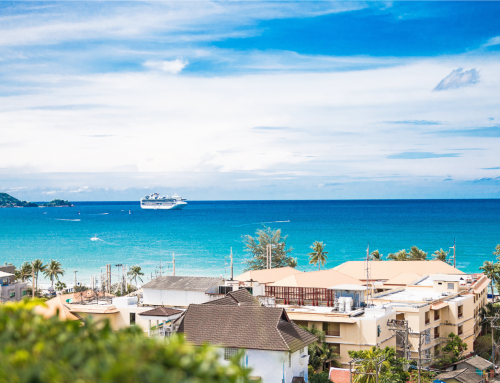What is a Condominium?
Condominiums are the properties most widely owned by foreigners in Thailand. However, many people don’t necessarily understand what a condominium is.
This article tries to enlighten potential buyers as to the legal structure, exactly what they will be buying, and a little history behind the concept.
What’s in a Word
The word condominium is derived from the Latin roots “com–” (together with) and “dominium” (right of ownership, property, dominion).
In Australia and parts of Canada they use the term “strata”, rather than condominium. You will also occasionally hear some developers in Thailand calling a condominium a Strata. Strata is the Latin plural of Stratum (a horizontal layer, a thing spread out, a spread, cover or quilt for a bed).
While the etymology of both words are very descriptive of modern condos (i.e. they describe something layered and co-owned), they don’t doesn’t tell us much about the history.
We usually associate condos with the USA, but while they are very popular structures there, the condominium concept did not originate in North America.
Where Did They Come From – The History of Condominiums
The first recorded “high rise” residential building dates all the way back to 434 B.C. in Babylon. It is also known that the Romans employed similar concepts, although whether they involved individual ownership is questioned.
And while the concept popped up periodically in Europe during the Middle Ages, the first modern condominium ownership structure (although not called a “condominium”) was in Belgium in 1924. This was soon followed in 1928 by a law permitting “horizontal property” in Brazil.
Puerto Rico adopted a similar “horizontal property” statute in 1958, and it is from there that the condominium made its way to the United States, and took the form we are all familiar with today.
It was in 1960 that a lawyer named Keith Romney suggested this legal concept to a developer in Salt Lake City. It was ratified into law by the Utah state legislature, making it possible for Romney’s client to divide his building into sub parcels, and sell each individually.
After the success of this legal structure in the state of Utah, the popularity spread across the US, and many states began to embrace the condominium concept.
The rest, as they say, is history.
America’s First Condominium – a Little Trivia
Most dictionaries define a condominium as follows:
An apartment building or complex of buildings whereby each unit is owned by the person living in it, but the area around the building and all common areas are owned by all the individual owners together.
or
The joint control or sovereignty over a territory or a territories affairs by several states or countries.
Although we often think only of a building as being a condominium, the dictionary definition above also references joint control over territory.
And history books do in fact point to the “Oregon Country” as North America’s first condominium. Between 1818 and 1846 the United States and Britain shared sovereignty over the region (which Britain called “The Columbia District”).
The Oregon Treaty of 1846 divided the territory between the two countries, but until then the word condominium was used to refer to the joint sovereignty (co-ownership) of the Oregon territory.
International law still uses the word condominium in this way, but it is the popularity of the legal building structure and ownership titles that has spread the word all over the world.
The Condominium Market Today
Today, the condominium structure is used by developers in almost every country. There are tens of millions of units in existence around the world, with circa 27 million units in the US alone. That means one in five Americans lives in a condo.
The value of owning a condo is becoming increasingly popular, especially as cities grow and urban areas become more populated. Owning a condo in a downtown or up market area is far more affordable than buying a single family home.
In Phuket, condos offer buyers the opportunity to own extremely affordable real estate in prime areas.
You can read some of the other benefits of condominium ownership here:
The Benefits and Advantages of Owning a Freehold Condominium in Thailand
So What Exactly is a Condominium in Thailand?
Prior to 1979, only apartment buildings were available in Thailand. These only allowed leasehold “ownership” for both Thais and foreigners.
Today, the same apartment blocks can be legally structured as condominiums. The units may be owned individually and the common areas shared with all other owners.
This also means that all common areas, including the gardens, the interior hallways, reception areas and any recreational facilities are jointly owned by everyone.
For the most part, the concept of a condominium in Thailand is identical to that in the US or elsewhere. But there is one big difference.
Condominiums in Thailand must adhere to the country’s land ownership laws, meaning foreign ownership within each development is limited.
The 1979 Condominium Act
The introduction of the Condominium Act in 1979 allowed this legal structure to take a foothold across Thailand.
The Act was mainly aimed at attracting investment into the country, and it was a major milestone for allowing foreigners to own real estate in the Kingdom.
Condominiums in Thailand, however, are structured so that they must be jointly owned or co-owned by both foreigners and Thais. So that land ownership laws are not breached, Thai nationals must make up the majority of owners.
Although the original Condominium Act allowed for only 40% foreign ownership of a condominium, this was increased to 49% in 1999. This foreign ownership quota still stands today.
You can read more about the Condominium Act in our article here:
The Things All Phuket Condominium Investors Should Know About the Condominium Act
Conclusion
Over the last 20 years, we have seen a great deal of development within the condominium sector, and this is expected to continue.
Every Thailand condo development must have 51% ownership by Thai nationals. The remaining 49% may be owned by foreigners.
The main attraction for foreigners in Thailand is that they may legally own real estate in the Kingdom. This includes a full Chanote title deed which is registered at the local Land Department.
If you would like to view some current condominium developments for sale in Phuket, you can do so here:
Condominiums For Sale in Phuket
References: Mike Mangan’s The Condominium Manual
Please see some of our other related Phuket real estate articles:
Owning a Freehold Condominium through an Offshore Company
What Exactly is a Leasehold in Thailand?
Using a Thai Company Limited to Purchase a Leasehold Condo Unit
What is a Condominium Sinking Fund?
Reasons to Invest in Phuket Property for New and Experienced Investors
Owning a Freehold Hotel-Licensed Condominium in Thailand
Buying Freehold Villas or Houses in the Name of a Thai Spouse
Buying Property in Phuket Thailand as a Foreigner: Purchase Procedure
5 Essential Tips for Buying Property in Thailand





Social Contact